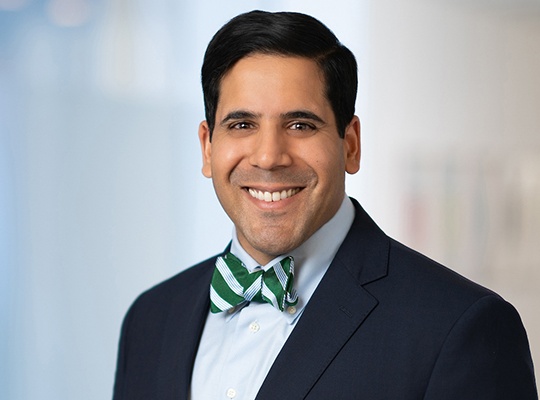Federal Court Finds “Oral Downloads” to SEC Waived Attorney Work Product Protection
U.S. Magistrate Judge Jonathan Goodman, in the Southern District of Florida, ruled last month that outside counsel’s “oral downloads” of internal investigation findings to the Staff of the Securities and Exchange Commission (“SEC” or the “Commission”) constituted waiver of protection under the attorney work product doctrine. Following that order, the parties continued to litigate the scope of the documents required to be disclosed until they resolved that aspect of the dispute. Although the parties' resolution suggests that this order will not be challenged on appeal, it remains a precedent that raises concerns about the consequences of companies providing information about internal investigations to the government in the hope of lenient treatment.
The Order
Judge Goodman issued the order in an SEC civil proceeding for alleged accounting fraud against two former executives of General Cable Corp. (“GCC”).1 After GCC discovered the alleged misconduct and engaged outside counsel to conduct an internal investigation, the law firm representing GCC disclosed to the SEC that it was conducting an ongoing review of the accounting errors. The SEC initiated its own investigation and requested, among other things, information obtained during the internal investigation. In a meeting with the SEC staff, GCC’s outside counsel orally presented information discovered during the investigation, which indicated that the former executives had manipulated accounting systems.
GCC ultimately agreed to settle two separate U.S. government actions, paying more than US$75 million to resolve investigations by the SEC and the U.S. Department of Justice (“DOJ”) for deficient accounting controls under the Foreign Corrupt Practices Act (“FCPA”) in addition to a US$6.5 million civil monetary penalty to the SEC for accounting and disclosure violations.2 Following this resolution, the SEC filed a complaint against the former GCC executives. In that action, the former executives served a subpoena on GCC’s outside law firm, seeking discovery of notes and memoranda documenting certain witness interviews, which GCC’s counsel had orally summarized to the SEC. The former executives asserted that, because GCC’s counsel had shared with the SEC information derived from or reflected in those documents, the underlying documents should be provided to the defendants. The defendants also argued that GCC’s counsel should have to disclose notes and memoranda pertaining to all witness interviews conducted as part of the investigation, because it had disclosed this more comprehensive set of documents to GCC’s outside auditor. The law firm resisted disclosure, arguing that the interview notes and memoranda constituted attorney work product. In addition, the former executives requested in camera review of the notes that GCC’s counsel took during its meeting with the SEC, in addition to any other meetings with either the SEC or the DOJ.
In his order, Judge Goodman sided with the former executives, reasoning that “[w]ork-product protection is waived when protected materials are disclosed in a way that ‘substantially increases the opportunity for potential adversaries to obtain the information.’”3 Though Judge Goodman ordered GCC’s counsel to disclose the notes and memoranda they had orally summarized to the SEC, notably, he concluded that comparable disclosures to GCC’s outside auditor did not constitute a waiver of work product protection, as the auditor was not a potential adversary.4 He also required GCC’s counsel to file under seal copies of “all attorney notes discussing or reflecting what information was disclosed to the SEC or the Department of Justice during meetings (or otherwise).”5
The order drew on precedent from the Southern District of Florida and elsewhere. Courts in the Southern District of Florida have held that waiver of work product protection may occur “when the covered materials are used in a manner that is inconsistent with the protection.”6 Judge Goodman also cited New York federal court decisions holding that waiver of work product protection occurs when materials are “disclosed in a manner which . . . substantially increases the opportunity for a potential adversary to obtain the protected information.”7 Judge Goodman cited a substantial body of decisions concluding that the SEC is deemed to be an adversary of a company subject to its jurisdiction when investigating potential wrongdoing.8 He ruled that there is no “meaningful distinction between the actual production of a witness interview note or memo and providing the same or similar information orally.”9
GCC’s counsel challenged the order and asked that it be required to produce only the notes made during the meeting with the SEC, not the underlying interview memos and notes.10 The court subsequently required GCC’s counsel to produce various materials under seal for the court’s review and scheduled an evidentiary hearing to determine the appropriate scope of the disclosure.11 In late December, the defendants and GCC’s counsel reached an agreement regarding which documents the law firm would produce.12 While details of the arrangement were not made public, the court concluded that the issue was resolved in an order issued on January 3, 2018.13
Potential Implications
Preservation of attorney client privilege and work product protection in internal investigations and subsequent disclosures to governmental authorities is a critical consideration for companies seeking to investigate potential misconduct and adopt appropriate remediation measures to prevent recurrence.
The ruling in this case is particularly salient in light of the U.S. government’s ongoing emphasis on encouraging voluntary disclosure by corporations. In considering whether to proceed against a corporation, the government weighs heavily whether a company voluntarily disclosed misconduct and cooperated with government investigations. In January 2017, for instance, the U.S. Commodity Futures Trading Commission issued new guidance clarifying the government’s expectations for companies seeking cooperation credit.14 The September 2015 “Yates Memo” also set forth the requirement for companies seeking cooperation credit from the DOJ to fully disclose information pertaining to individuals responsible for misconduct.15 If oral presentations by counsel to enforcement authorities waive work product protection, then companies will need to consider an additional variable in deciding whether to disclose and the contents of such disclosures.
In particular, this ruling may have consequences for corporate voluntary disclosure of violations of the FCPA, undercutting recent U.S. government initiatives to encourage such disclosures. In 2015, the SEC made voluntary self-disclosure a requirement for companies seeking Deferred Prosecution Agreements (“DPAs”) and Non-Prosecution Agreements (“NPAs”) in cases involving violations of the FCPA.16 The DOJ issued a new policy statement refining its FCPA Pilot Program in November 2017, offering incentives to companies that voluntarily disclose their employees’ violations and cooperate with government investigations.17
Judge Goodman’s order introduces a new challenge for companies seeking cooperation credit, as they will now need to calculate the risk that they will waive work product protection and be required to disclose in discovery the information previously shared with government authorities.
Footnotes
1) U.S. Securities and Exchange Commission v. Mathias Francisco Sandoval Herrera et al., No. 17-20301-cv-Lenard/Goodman, 2017 WL 6041750 (S.D. Fla. Dec. 5, 2017).
2) See U.S. Securities and Exchange Commission, “Wire and Cable Manufacturer Settles FCPA and Accounting Charges” (Dec. 29, 2016).
3) Sandoval Herrera, 2017 WL 6041750, at *4 (quoting Niagara Mohawk Power Corp. v. Stone & Webster Eng. Corp., 125 F.R.D. 578, 587 (N.D.N.Y. 1989)).
4) Id. at *6–7.
5) Id. at *6.
6) Kallas v. Carnival Corp., No. 06-20115-CIV, 2008 WL 2222152, at *4 (S.D. Fla. May 27, 2008); see also Brown v. NCL (Bahamas), Ltd., 155 F. Supp. 3d 1335, 1339 (S.D. Fla. 2015).
7) Niagara, 125 F.R.D. at 590; Bank of Brussels Lambert v. Chase Manhattan Bank, N.A., No. 93 CIV. 5298 LMM RLE, 1996 WL 944011, at *3 (S.D.N.Y. Dec. 19, 1996); Falise v. Am. Tobacco Co., 193 F.R.D. 73, 79 (E.D.N.Y. 2000).
8) E.g., In re Initial Pub. Offering Sec. Litig., 249 F.R.D. 457, 465-67 (S.D.N.Y. 2008); United States v. Bergonzi, 216 F.R.D. 487, 497-98 (N.D. Cal. 2003).
9) For this premise, Judge Goodman drew upon, inter alia, S.E.C. v. Vitesse Semiconductor Corp., No. 10 CIV. 9239 JSR, 2011 WL 2899082, at *3 (S.D.N.Y. July 14, 2011) (concluding that waiver occurred where a party “effectively produced” notes to the SEC via “oral summaries”), and S.E.C. v. Roberts, 254 F.R.D. 371, 377 (N.D. Cal. 2008) (concluding that an individual waived work product protection where he orally disclosed the factual contents of written material).
10) Motion for Clarification, U.S. Securities and Exchange Commission v. Mathias Francisco Sandoval Herrera et al., No. 17-cv-20301-Lenard/Goodman (S.D. Fla. Dec. 12, 2017), ECF No. 73.
11) Order Concerning Non-Party Law Firm’s Motion for Clarification of Order Compelling Production, U.S. Securities and Exchange Commission v. Mathias Francisco Sandoval Herrera et al., No. 17-cv-20301-Lenard/Goodman (S.D. Fla. Dec. 19, 2017), ECF No. 82; Order Concerning Evidentiary Hearing, U.S. Securities and Exchange Commission v. Mathias Francisco Sandoval Herrera et al., No. 17-cv-20301-Lenard/Goodman (S.D. Fla. Dec. 22, 2017), ECF No. 89.
12) See Order Following Resolution of Dispute Concerning Subpoena Served on Law Firm, U.S. Securities and Exchange Commission v. Mathias Francisco Sandoval Herrera et al., No. 17-cv-20301-Lenard/Goodman (S.D. Fla. Jan. 3, 2018), ECF No. 98.
13) Id.
14) See U.S. Commodity Futures Trading Commission, “CFTC’s Enforcement Division Issues New Advisories on Cooperation” (Jan. 19, 2017).
15) Memorandum from Sally Quillian Yates, Deputy Attorney General, U.S. Department of Justice, Individual Accountability for Corporate Wrongdoing (Sept. 9, 2015).
16) Andrew Ceresney, Director, Division of Enforcement, Securities and Exchange Commission, ACI's 32d FCPA Conference Keynote Address (Nov. 17, 2015).
17) Rod Rosenstein, Deputy Attorney General, U.S. Department of Justice, Remarks at the 34th International Conference on the Foreign Corrupt Practices Act (Nov. 29, 2017).



